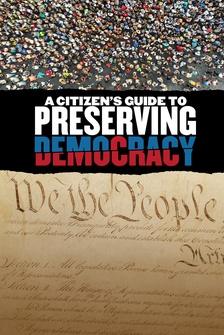GEOFF BENNETT: The Federal Reserve cut its benchmark lending rate again today, this time by a quarter-point.
The economy, and particularly the high cost of living, including high housing prices, which are directly affected by these rates, is a big reason why Donald Trump won this week.
Today, Federal Reserve Chair Jerome Powell was asked about a disconnect between how people feel financially and other data suggesting the economy is doing well.
JEROME POWELL, Federal Reserve Chairman: We say the economy is performing well, and it is, but we also know that people are still feeling the effects of high prices, for example.
And we went through -- the world went through a global inflation shock, and inflation went up everywhere and it stays with you because the price level doesn't come back down.
So what that takes is, it takes some years of real wage gains for people to feel better.
And that's what we're trying to create, and I think we're well on the road to creating that.
GEOFF BENNETT: At the same time, Powell and the Fed could be facing a tougher road to come with possible changes and pressure from president-elect Trump.
He's often been critical of Powell, whom he first nominated as chair.
Jeanna Smialek is covering it all for The New York Times and joins us now.
Thanks for being with us.
JEANNA SMIALEK, The New York Times: Thanks for having me.
GEOFF BENNETT: So what do you make of today's announcement?
What does it say about the strength of the U.S. economy?
JEANNA SMIALEK: I think today's announcement really says that inflation is coming under control, which has sort of been the missing element of this economy for years now.
And that is allowing the Fed to bring down interest rates, which makes, obviously -- for the typical consumer, it makes it a little bit cheaper to buy things on borrowed money.
So I think, all in all, this is a sign that things are good and things are, in fact, getting better, so I think, overall, very optimistic message.
GEOFF BENNETT: And what might it mean for people's finances and their borrowing?
How will this series of cuts help on that front?
JEANNA SMIALEK: Yes, so I think it means two things.
One, it means that borrowed money is a little bit cheaper than it otherwise would be, if the Fed continues cutting interest rates.
When you talk to economists, they will tell you that should, with time, sort of bleed over into all kinds of other interest rates that face consumers like mortgages and things like that.
And then I think the second thing that really matters here is the fundamental goal with rate cuts like the ones the Fed is making right now is to maintain the strength of the labor market.
And if we can maintain a strong labor market, one that's adding jobs every month and one with low unemployment, that should over time allow wages to continue rising, and that should allow people to really catch up with the inflation that we have seen in recent years.
And so I think those two factors, both cheaper borrowing costs on one hand and continued strong wage growth on the other, are really good signs for the American consumer.
GEOFF BENNETT: You mentioned mortgage rates.
Interestingly enough, mortgage rates aren't really falling right now, even though the rates have been cut.
What accounts for that?
JEANNA SMIALEK: Yes, so there are a couple of things happening here.
One of them is that mortgage rates really turn on what the Fed is expected to do, so not so much what it is doing, but what it what it is expected to do next.
And what we have seen in recent weeks and months is that investors first really thought the Fed was going to cut rates a lot.
So you did see mortgage rates come down a little bit earlier this year.
But then recently they have kind of pulled that back a little bit.
They're not expecting the Fed to cut rates as much.
And that's for a couple of reasons.
One is that the economy has been stronger than we had expected.
We have seen some signs of real resilience, especially on the part of the U.S. consumer.
And then the second thing is Donald Trump's election.
As it became clear that Mr. Trump might win election and with his win this week, there's been this expectation that we might see policies that could stoke a little bit of growth, but which could also stoke some inflation.
Think tariffs, think tax cuts, and those things could keep the Fed from cutting interest rates and could also just make the nation's debt pile grow.
And those two factors both push up bond yields and markets and those translate into higher mortgage costs, so sort of those two big factors feeding into mortgage rates at the moment.
GEOFF BENNETT: Well, tell me more about that.
The degree to which Donald Trump's policy proposals, the tariffs, the tax cuts, the mass deportation of undocumented workers, how might that add to inflationary pressure and really complicate the Fed's ongoing plan of continuing to cut rates?
JEANNA SMIALEK: So there is a huge range of estimates about exactly how much inflation these policies would add.
But pretty much any economist shop you talk to, whether it's Goldman Sachs or the Peterson Institute for International Economics or anybody else on Wall Street, will tell you that these policies are likely to be at least a little bit inflationary.
And the reason is that things like tariffs feed straight into consumer prices, depending on how other countries react.
And things like deportations can lead to, at least in the short term, labor shortages and particularly tight labor markets that might result in fewer houses being built or fewer farms producing.
And that can push up prices.
And so I think that the real concern is that we can have an inflationary episode out of this and that, while that might not matter that much in a normal environment, it could matter quite a bit at this moment, because we are just coming out of this long period of relatively high inflation.
And there's a real risk that it sort of adds fuel to a fire that has only just been extinguished and is sort of simmering on the hearth a little bit.
And so I think the real risk is this reignites an inflation problem that we are in the process of getting rid of.
GEOFF BENNETT: Yes.
Well, look, as we mentioned, Donald Trump has been critical of Fed Chair Powell in the past.
And Powell had a direct response today during that news conference when he was asked by a reporter if he would resign if Donald Trump asked him to step down.
Take a look.
QUESTION: Some of the president-elect's advisers have suggested that you should resign.
If he asked you to leave, would you go?
JEROME POWELL: No.
QUESTION: Can you follow up on -- is -- do you think that legally you're not required to leave?
JEROME POWELL: No.
GEOFF BENNETT: So, no is a complete sentence.
Put this into context for us because the Fed really guards its independence and it really guards and tries to protect its reputation.
JEANNA SMIALEK: Yes, they do.
And the man is not usually monosyllabic when he is answering reporter questions.
That was an unusual occurrence.
But I think that the point was, he was trying to be extremely clear about what the Fed thinks about this issue.
He does not think that he can be removed.
He feels strongly that he cannot, the president does not have the legal ability to demote or remove a Fed chair.
And so I think he was trying to be very up front about that.
There has been a history between President Trump and the Fed of real strife.
President Trump talked quite a bit at length during his first term about either firing or demoting Chair Powell.
This is a question that's come up before.
And so I think it's natural that, with his reelection, it's surfacing again, although President Trump has said that he isn't planning on firing Jay Powell.
I think there are still some questions out there.
And so I think that the Fed is trying to sort of shore up its independence, prove that it is independent of the White House, that the White House cannot control it, and the White House can't bully it into doing some sort of policy move that it does not feel is warranted based on the economy.
And so I think that's really what we saw in that answer today.
GEOFF BENNETT: Jeanna Smialek of The New York Times, thanks so much for being with us.
JEANNA SMIALEK: Thanks for having me.










